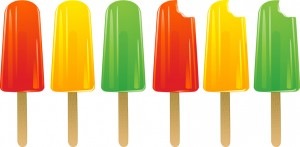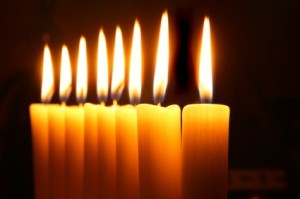 It starts with watching this video:
It starts with watching this video:
23 and 1/2 hours: What is the single best thing we can do for our health? DocMikeEvans
If you are receiving this post via email you might have to view it online. Click here.
 It starts with watching this video:
It starts with watching this video:
23 and 1/2 hours: What is the single best thing we can do for our health? DocMikeEvans
If you are receiving this post via email you might have to view it online. Click here.
 Are your pants feeling a bit tight and you can’t figure out why?
Are your pants feeling a bit tight and you can’t figure out why?
It’s those mindless bites that will get you. Each one of those “shove it in your mouth without thinking about it” bites is worth about 25 calories. Do the math. If you have four mindless bites a day above and beyond your daily calorie needs that means possibly gaining slightly less than a pound a month (it takes 3500 calories to gain a pound — and yes, you need a deficit of 3500 calories to lose a pound).
Ouch! Each bite adds up to — on average — 25 calories (sometimes more, sometimes less).
Be aware of what you’re eating – especially when you’re not really eating. Most of us don’t have a clue how many calories – or even bites – we’ve shoved into our mouths at times other than meals. Unfortunately, all of those calories that we eat when we’re not eating meals not only count but add up to those pounds gained — and you can’t figure out why you gained them.
Keep track of when and where you’re most likely to indulge in the mindless bites you shove down the hatch while you’re walking, talking, socializing, working, and driving.
The most effective method is to try to write down what you eat. That may be a pain but might serve as a real “heads-up” because a written record is hard to deny. If you don’t want to write it down (I must admit I have trouble doing that) at least be aware of your mindless bites – and decide if you want to eliminate, control, or include them in your daily calories.
Awareness is a good thing — especially if it makes your jeans fit better.
 For many of us New Year’s Day means football and New Year’s resolutions. We declare that we’re going to do or not do something – usually having to do with lifestyle changes like losing weight, exercising more, eating better, or drinking less. Heard that before?
For many of us New Year’s Day means football and New Year’s resolutions. We declare that we’re going to do or not do something – usually having to do with lifestyle changes like losing weight, exercising more, eating better, or drinking less. Heard that before?
Have you ever seen the hang-dog look on the face of an athlete in a goal scoring drought — or the look on a goalie’s face when that blasted ball or puck lands in the net?
We often set broad – huge – resolutions and goals that are virtually impossible to accomplish (like losing thirty pounds by the end of next week) and end up making you feel awful when you don’t achieve them. You’ve basically set yourself up for failure and most likely you’ll be sporting that hang-dog look, too.
 The earliest recorded celebration of the arrival of the new year dates back 4,000 years ago in ancient Babylon. The first new moon following the vernal equinox, or the day in the spring with an equal amount of sunlight and darkness, signaled the start of a new year.
The earliest recorded celebration of the arrival of the new year dates back 4,000 years ago in ancient Babylon. The first new moon following the vernal equinox, or the day in the spring with an equal amount of sunlight and darkness, signaled the start of a new year.
Today, New Year’s Day–the first day of the calendar year–is celebrated in almost every country in the world, but depending the type of calendar, not all countries or cultures welcome the New Year on January 1st. The Chinese, Egyptian, Jewish, Roman, and Mohammedan years all have different start dates.
January 1 was recognized as New Years Day in the 1500’s with the introduction of the Gregorian Calendar. In 1582 most Catholic countries adopted the Gregorian calendar but the British didn’t adopt it until 1752. Until then the British Empire and their American colonies celebrated the new year in March.
If you have big plans for New Year’s Eve, enjoy yourself by devising an eating strategy before you go out and committing to carrying it out. If you’re watching your weight, have a plan – you can still enjoy yourself and not feel deprived. With a plan you design just for you, you’ll have a much better chance at succeeding – and not end up hating yourself and cursing the scale on the first day of the New Year. Here are some ideas:
If you go to a New Year’s party and have:
you would have consumed 27030 calories and you would need to walk 27.03 miles, or 54060 steps (assuming you cover one mile in 2,000 steps) to burn off those calories.
 Hanukkah (or Chanukah), the Festival of Lights, is an eight-day Jewish celebration that commemorates the second century BC victory of the Maccabees over the Syrians. After the victory Judah called on his followers to cleanse the Second Temple, rebuild its altar, and light its menorah, the gold candelabrum with seven branches representing knowledge and creation.
Hanukkah (or Chanukah), the Festival of Lights, is an eight-day Jewish celebration that commemorates the second century BC victory of the Maccabees over the Syrians. After the victory Judah called on his followers to cleanse the Second Temple, rebuild its altar, and light its menorah, the gold candelabrum with seven branches representing knowledge and creation.
The Temple needed to be rededicated by lighting the N’er Tamid (eternal light present in every Jewish house of worship), which shouldn’t be extinguished once lit. Only one jar of untainted sacramental oil was found which was barely enough to burn for one day, but miraculously, the small amount of oil continued to burn for eight days and eight nights.
Hanukkah is a time of joy and family celebration, fun and traditional foods. Since oil, especially olive oil, is the main ingredient in the ‘Nes Chanukah,’ the Miracle of Chanukah, oil-based foods are favorite recipes on this holiday. ‘Levivot,’ also known as ‘Latkes,’ simple potato pancakes, as well as ‘sufganiyot,’ jelly donuts, are very popular during Chanukah.
Although Hanukkah foods can represent serious temptation for anyone, following some tips will help you succeed (and still honor the holiday) instead of “starting over” after the New Year.
 How Not to Get Fat Over The Holidays: Halloween – Thanksgiving – Hanukkah – Christmas – Kwanzaa – New Year’s – Valentine’s Day
How Not to Get Fat Over The Holidays: Halloween – Thanksgiving – Hanukkah – Christmas – Kwanzaa – New Year’s – Valentine’s Day